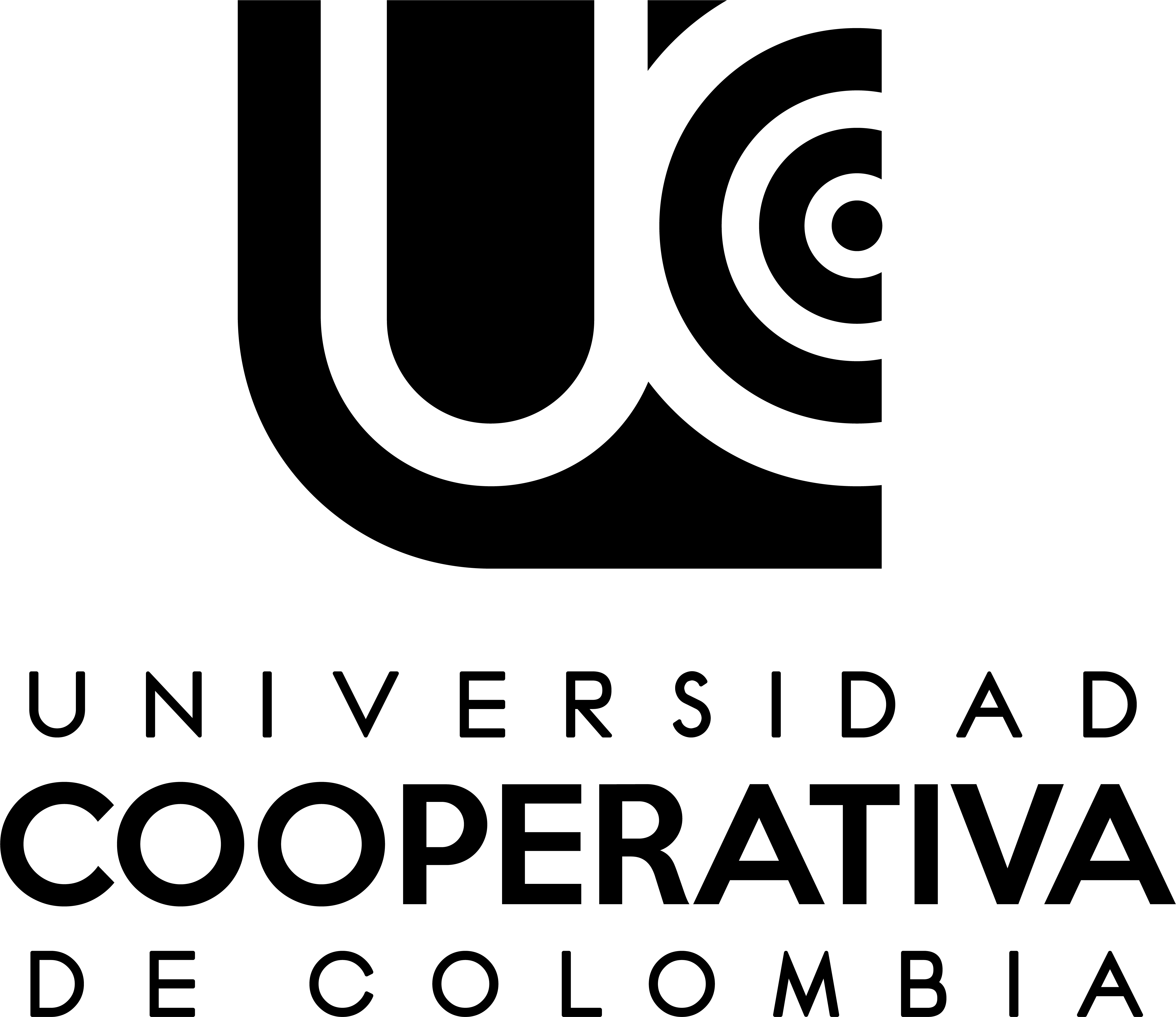Exploring a framework for solidarity entrepreneurship in the context of the confluence of the fourth industrial revolution, covid-19, and climate change

Centro de Investigación Científica y de Educación Superior de Ensenada-CICESE
Directora del Centro de Excelencia en Innovación y Diseño. Colegio de Ingeniería. CETYS Universidad. México. Candidata a Doctora en el Centro de Investigación CICESE, México.
email: veronica.rojas.m@gmail.com
Profesor de Tiempo Completo. Facultad de Economía y Relaciones Internacionales.
Universidad Autónoma de Baja California. Tijuana. México.
email: arturoserrano@uabc.edu.mx
Investigador Tecnológico. MioCorp. Ensenada. México.
email: cagelopez@yahoo.com.mx
Introduction: Since the beginning of the last decade, the number and scope of studies on the impact of the Fourth Industrial Revolution have intensified, particularly in Artificial Intelligence, Automation, Robotics, and other related disciplines regarding the future of work. These studies discuss relevant changes in the employment and entrepreneurship ecosystem with significant socioeconomic and cultural implications. As a result of the global pandemic of COVID-19, it is essential to review the transformations that will further affect that ecosystem.
Objective: This article aims to identify the implications of the confluence of the Fourth Industrial Revolution, COVID-19, and Climate Change in terms of the challenges and opportunities faced by entrepreneurs during this remarkable global metamorphosis.
Methodology: In our exploration, we use a complexity science perspective to offer a framework for the management of Solidarity Entrepreneurship.
Results: We developed a framework to identify the elements that, under the new global context, must be considered to provide alternative perspectives of entrepreneurship oriented to preventing or mitigating the effects caused by the confluence described above.
Conclusions: Our proposal recommends an entrepreneur’s skill set that considers the ethical, moral, regulatory, and other innovation and cognitive concerns to optimize entrepreneurial ventures focused on the requirements of the pressing global scenario in progress.
D. Acemoglu and P. Restrepo, “Artificial Intelligence, Automation and Work,” MIT Department of Economics Working Paper, no 18-01. doi: https://doi.org/10.2139/ssrn.3098384.
M. Bosch. C. Pagés, and L. Ripani, El futuro del trabajo en América Latina y el Caribe: ¿Una gran oportunidad para la región? Banco Interamericano de Desarrollo, 2018. [Online]. Available: https://publications.iadb.org/publications/spanish/document/El_futuro_del_trabajo_en_Am%C3%A9rica_Latina_y_el_Caribe_Una_gran_oportunidad_para_la_regi%C3%B3n_versi%C3%B3n_para_imprimir.pdf
E. Brynjolfsson and A. McAfee, “Will Humans Go the Way of Horses? Labor in the Second Machine Age,” Foreign Affairs, vol. 94, no. 4, pp. 8–14, 2015.
E. Brynjolfsson and A. McAfee, The second machine age: work, progress, and prosperity in a time of brilliant technologies. W.W. Norton & Company, 2016.
J. Bughin, E. Hazan, S. Lund, P. Dahlström, A. Wiesinger, and A. Subramaniam, Skill Shift: Automation and the Future of the Workforce. McKinsey Global Institute, 2018. [Online]. Available: https://www.mckinsey.com/~/media/McKinsey/Featured%20Insights/Future%20of%20Organizations/Skill%20shift%20Automation%20and%20the%20future%20of%20the%20workforce/MGI-Skill-Shift-Automation-and-future-of-the-workforce-May-2018.ashx.
C. B. Frey and M. A. Osborne, “The future of employment: How susceptible are jobs to computerisation?,” Technological Forecasting and Social Change, vol. 114, pp. 254–280. doi: https://doi.org/10.1016/j.techfore.2016.08.019.
J. Hagel, J. Schwartz, and J. Bersin, Navigating the future of work. Deloitte, 2017. [Online]. Available: https://www2.deloitte.com/content/dam/Deloitte/nl/Documents/humancapital/deloitte-nl-hc-navigating-the-fow.pdf.
P. Hortal, Empleo y nuevas culturas laborales (I) - No tengas miedo a hacerlo mejor, 2019. [Online]. Available: https://pauhortal.net/blog/empleo-y-nuevas-culturas-laborales-i/
J. Manyika et al., Un Futuro que Funciona: Automatización, Empleo y Productividad. McKinsey & Company, 2017. [Online]. Available: https://www.mckinsey.com/~/media/mckinsey/featured%20insights/digital%20disruption/harnessing%20automation%20for%20a%20future%20that%20works/a-future-that-works-executive-summary-spanish-mgi-march-24-2017.ashx.
Organización Internacional del Trabajo, Trabajar para un Futuro más Prometedor. Organización Internacional del Trabajo, 2019. [Online]. Available: https://www.ilo.org/wcmsp5/groups/public/---dgreports/---cabinet/documents/publication/wcms_662442.pdf.
K. Schwab, The Fourth Industrial Revolution. World Economic Forum, 2016. [Online]. Available: https://luminariaz.files.wordpress.com/2017/11/the-fourth-industrial-revolution-2016-21.pdf.
N. Countouris, V. De Stefano, K. Ewing, and M. Freedland, “Covid-19 crisis makes clear a new concept of ‘worker’ is overdue,” Social Europe, 2020. [Online]. Available: https://www.socialeurope.eu/covid-19-crisis-makes-clear-a-new-concept-of-worker-is-overdue
M. Mazzucato, Capitalism’s triple crisis. Social Europe, 2020. [Online]. Available: https://www.socialeurope.eu/capitalisms-triple-crisis
OMS, Nuevo coronavirus 2019, 2020. [Online]. Available: https://www.who.int/es/emergencies/diseases/novel-coronavirus-2019
ONU, Objetivos y metas de desarrollo sostenible. Desarrollo Sostenible, 2015. [Online]. Available: https://www.un.org/sustainabledevelopment/es/objetivos-de-desarrollo-sostenible/
B. Gates, “The first modern pandemic,” Gatesnotes. [Online]. Available: https://www.gatesnotes.com/Health/Pandemic-Innovation
C. Theodoraki, How to Build a Sustainable Ecosystem: The Relevance of Governance and Coopetition. ICSB Gazette The Global Leader Supporting Micro-, Small and Medium Enterprises, no. 37, 2019.
G. Lichfield, “We’re not going back to normal,” MIT Technology Review, 2020. [Online]. Available: https://www.technologyreview.com/2020/03/17/905264/coronavirus-pandemic-social-distancing-18-months/ (último acceso 4 de mayo, 2020).
E. Yong, How the Pandemic Will End. The Atlantic, 2020.
Dov Seidman, “Commentary: Why the coronavirus crisis makes moral leadership more important than ever,” Fortune, 2020. [Online]. Available: https://fortune.com/2020/04/23/moral-leadership-stakeholder-shareholder-capitalism-coronavirus/
J. Bossmann, Top 9 ethical issues in artificial intelligence. World Economic Forum, 2016. [Online]. Available: https://www.weforum.org/agenda/2016/10/top-10-ethical-issues-in-artificial-intelligence/ (último acceso 4 de mayo, 2020).
M. Chui et al., Notes from the AI Frontier Applying AI for Social Good. McKinsey & Company, 2018. [Online]. Available: https://www.mckinsey.com/~/media/McKinsey/Featured%20Insights/Artificial%20Intelligence/Applying%20artificial%20intelligence%20for%20social%20good/MGI-Applying-AI-for-social-good-Discussion-paper-Dec-2018.ashx.
M. I. A. Ferreira, J. S. Sequeira, M. O. Tokhi, E. E. Kadar, G. S. Virk, and Universidade de Lisboa, A world with robots. International Conference on Robot Ethics: ICRE 2015. Cham, Switzerland: Springer, 2017.
IBM, Everyday Ethics for Artificial Intelligence. IBM, 2019. [Online]. Available: https://www.ibm.com/watson/assets/duo/pdf/everydayethics.pdf.
IEEE, Ethically Aligned Design,. Ethics in Action Ethically Aligned Design, 2020. [Online]. Available: http://ethicsinaction.ieee.org/ (último acceso 4 de mayo, 2020).
S. H. Ivanov and C. Webster, Adoption of Robots, Artificial Intelligence and Service Automation by Travel, Tourism and Hospitality Companies – A Cost-Benefit Analysis. International Scientific Conference “Contemporary Tourism – Traditions and Innovations”, Sofia University, 2017. [Online]. Available: https://ssrn.com/abstract=3007577.
M. Maurer, J. C. Gerdes, B. Lenz, and H. Winner, Autonomous driving: technical, legal and social aspects. Springer Open, 2016.
S. Chatzopoulou, Social trust and government responses to Covid-19 – Sevasti Chatzopoulou. Social Europe, 2020. [Online]. Available: https://www.socialeurope.eu/social-trust-and-government-responses-to-covid-19
M. Mexi, The future of work in the post-Covid-19 digital era. Social Europe, Apr. 01, 2020. [Online]. Available: https://www.socialeurope.eu/the-future-of-work-in-the-post-covid-19-digital-era
A. Hualde-Alfaro, Tecnologías contra el virus: un desafío social y político. COMECSO, 2020. [Online]. Available: https://www.comecso.com/observatorio/tecnologias-virus-desafio-social-politico
Tijuana EDC, Maquiladoras/Contract Manufacturing in Mexico - Tijuana EDC, 2018. [Online]. Available: https://tijuanaedc.org/ (último acceso 4 de mayo, 2020).
L. Caruso, “Digital innovation and the fourth industrial revolution: epochal social changes?,” AI & SOCIETY, vol. 33, no. 3, pp. 379–392, Aug. 2018, doi: https://doi.org/10.1007/s00146-017-0736-1.
E. J. Castañares-Maddox, Sistemas complejos y gestión ambiental el caso del Corredor Biológico Mesoamericano México, 2009.
R. García, Sistemas complejos. Conceptos, método y fundamentación epistemológica de la investigación interdisciplinaria, Cla. De. Ma Filosofía de la Ciencia. Gedisa editorial, 2006.
T. Land, Capacity change and performance: insights and implications for development cooperation. European centre for development policy management (ECDPM), 2008. [Online]. Available: http://ecdpm.org/wp-content/uploads/PMB-21-Capacity-Change-Performance-Insights-Implications-Development-Cooperation-December-2008.pdf.
A. Guzmán Vásquez and M. A. Trujillo Dávila, “Emprendimiento social – revisión de literature,” Estudios Gerenciales, vol. 24, no. 109, pp. 105–125. doi: 10.1016/S0123-5923(08)70055-X.
P. Juneja, What is Social Entrepreneurship? Definition, its History and Concepts, 2020. [Online]. Available: https://www.managementstudyguide.com/social-entrepreneurship.htm
A. El Tarabishy, “Humane Entrepreneurship,” Thinking Paper Series, vol. 1. International Council for Small Business, 2020. [Online]. Available: https://icsb.org/humaneentrepreneurship/
P. Mathieson, ¿Cómo preparar al profesorado para el futuro? Observatorio de Innovación Educativa, 2020. [Online]. Available: https://observatorio.tec.mx/edu-news/entrevista-peter-mathieson
Coursera, Global Skills Index 2019. Coursera, 2019. [Online]. Available: https://pages.coursera-for-business.org/rs/748-MIV-116/images/global-skills-index.pdf?utm_medium=coursera&utm_source=small-org&utm_campaign=website&utm_content=gsi-small-org-ty-middle-download-gsi.
Desire2Learn, The Future of Skills in the Age ok the 5th Industrial Revolution. D2L Corporation, 2019. [Online]. Available: https://www.d2l.com/wp-content/uploads/2019/01/The-Future-of-Skills-Whitepaper-1.pdf.
S.L. Educaedu Business, Carreras universitarias Ingeniería y Tecnología en Baja California. Educaedu, 2020. [Online]. Available: https://www.educaedu.com.mx/carreras-universitarias/ingenieria-tecnologia/baja-california
J. Hale, The Most in Demand Skills for Data Scientists. Medium, 2018. [Online]. Available: https://towardsdatascience.com/the-most-in-demand-skills-for-data-scientists-4a4a8db896db
IF Gagne, Global AI Talent Pool Report, 2018. [Online]. Available: https://jfgagne.ai/talent/
OECD, OECD Employment Outlook 2019: The Future of Work, 2020. [Online]. Available: https://www.oecd-ilibrary.org/employment/oecd-employment-outlook-2019_9ee00155-en
Organisation for Economic and Co-operation and Development, OECD Skills Outlook 2019: Thriving in a Digital World, 2019. [Online]. Available: http://www.oecd.org/education/oecd-skills-outlook-e11c1c2d-en.htm
World Economic Forum, The Future of Jobs Report. World Economic Forum, 2018. [Online]. Available: http://www3.weforum.org/docs/WEF_Future_of_Jobs_2018.pdf.
M. Dondi, et al., "Defining the skills citizens will need in the future world of work," McKinsey & Company.
International Teaching Center, “Training Institutes Attaining a Higher Level of Functioning”, 2017. [Online]. Available: https://bahai-library.com/uhj_training_institutes
A. E. Belling y J. Vanhulst, Desarrollo non sancto: La religión como actor emergente en el debate global sobre el futuro del planeta. Siglo XXI, 2019
Copyright (c) 2022 Ingeniería Solidaria

This work is licensed under a Creative Commons Attribution 4.0 International License.
Cession of rights and ethical commitment
As the author of the article, I declare that is an original unpublished work exclusively created by me, that it has not been submitted for simultaneous evaluation by another publication and that there is no impediment of any kind for concession of the rights provided for in this contract.
In this sense, I am committed to await the result of the evaluation by the journal Ingeniería Solidaría before considering its submission to another medium; in case the response by that publication is positive, additionally, I am committed to respond for any action involving claims, plagiarism or any other kind of claim that could be made by third parties.
At the same time, as the author or co-author, I declare that I am completely in agreement with the conditions presented in this work and that I cede all patrimonial rights, in other words, regarding reproduction, public communication, distribution, dissemination, transformation, making it available and all forms of exploitation of the work using any medium or procedure, during the term of the legal protection of the work and in every country in the world, to the Universidad Cooperativa de Colombia Press.










